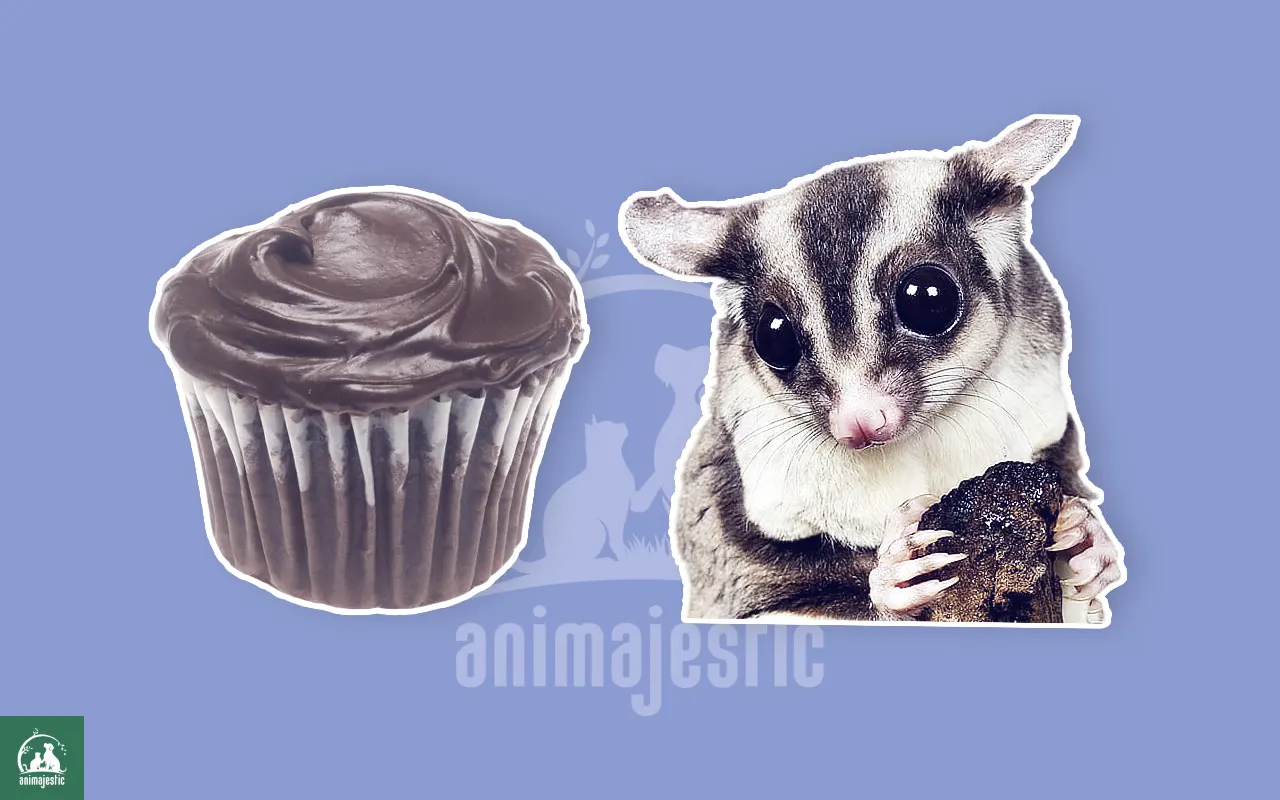Whether sugar gliders eat chocolate or not is one of many other questions that often arise among people who care to adopt or already adopted them. As with any pet, it is crucial to provide sugar gliders with a balanced, nutritious diet to ensure their health and happiness.
Pets are meant to be cared for and that is why they are pets, overall care is important and this does not leave out what they eat or consume, be it regularly or at random.
As humans, we consume almost anything, and sometimes, our pets may stare at us feeling like they deserve what we are eating at that moment. So what’s up with chocolate?
Chocolate and Sugar Gliders: A Dangerous Combination
The short answer to the question of whether sugar gliders can eat chocolate is a resounding NO. Chocolate contains substances that are toxic to sugar gliders and can cause severe health issues or even death. Let’s take a closer look at the harmful components of chocolate and why they pose such a significant threat to sugar gliders.
Theobromine: A Bitter Threat
Theobromine is a bitter alkaloid found in varying concentrations in chocolate, with dark chocolate containing the highest amounts. This compound is structurally similar to caffeine and has similar effects on the body. While humans can efficiently metabolize theobromine, sugar gliders cannot process it as effectively. Consequently, theobromine can accumulate in their system and cause severe health problems.
Caffeine: A Stimulant Risk
Caffeine is another substance found in chocolate, albeit in smaller amounts than theobromine. Like theobromine, sugar gliders cannot efficiently metabolize caffeine, leading to a buildup of the substance in their bodies. This can cause serious health issues, such as increased heart rate, tremors, and seizures.
Recognizing Chocolate Toxicity in Sugar Gliders
If a sugar glider consumes chocolate, they may exhibit symptoms of chocolate toxicity. These symptoms can vary depending on the amount and type of chocolate ingested, as well as the individual sugar glider’s sensitivity to theobromine and caffeine. Some common signs of chocolate toxicity in sugar gliders include:
- Vomiting
- Diarrhea
- Rapid breathing
- Increased heart rate
- Restlessness
- Hyperactivity
- Tremors
- Seizures
- Collapse
- Death
It is crucial to contact your veterinarian immediately if you suspect your sugar glider has consumed chocolate or is exhibiting any of these symptoms. Early intervention can significantly improve your sugar glider’s chances of recovery.
Preventing Chocolate Exposure and Providing a Balanced Diet
To keep your sugar glider healthy, it’s essential to provide them with a balanced diet that meets their nutritional needs and avoid exposing them to harmful substances like chocolate. Here are some tips for creating a proper sugar glider diet and preventing accidental chocolate consumption:
Designing a Nutritious Sugar Glider Diet
A well-rounded sugar glider diet should consist of:
- Commercial sugar glider pellets or kibble: These specially formulated products provide a balanced mix of essential nutrients for sugar gliders. Be sure to choose a high-quality brand recommended by your veterinarian.
- Fresh fruits and vegetables: Offer a variety of fruits and vegetables (e.g., apples, grapes, berries, carrots, and sweet potatoes) to provide essential vitamins and minerals. Be sure to wash all produce thoroughly to remove any pesticides or contaminants.
- Protein sources: Sugar gliders require protein in their diet, which can be provided through insects (e.g., mealworms, crickets, and waxworms) and small amounts of cooked lean meats (e.g., chicken or turkey). Insects should be gut-loaded or dusted with calcium powder to ensure proper calcium intake.
- Occasional treats: While treats should be given sparingly, sugar gliders can enjoy occasional snacks like yogurt drops, unsalted nuts, or sugar glider-safe biscuits.
Foods to Avoid
It’s essential to avoid feeding your sugar glider foods that are toxic or harmful to them, such as:
- Chocolate
- Onions
- Garlic
- Avocado
- Foods high in salt or sugar
- Raisins and grapes (due to potential toxicity in some animals)
- Uncooked meat or eggs
- Dairy products (sugar gliders are lactose intolerant)
Preventing Accidental Chocolate Consumption
To prevent your sugar glider from accidentally consuming chocolate, be sure to:
- Store chocolate and other harmful foods in secure containers or cabinets that your sugar glider cannot access.
- Do not leave chocolate or other toxic foods unattended where your sugar glider may come into contact with them.
- Educate family members and guests about the dangers of chocolate for sugar gliders and the importance of keeping chocolate out of their reach.
Conclusion
Sugar gliders should not eat chocolate, as it contains substances that are toxic to them and can lead to severe health issues or death. To keep your sugar glider healthy and happy, provide them with a balanced diet that meets their nutritional needs and avoids harmful foods. If your sugar glider consumes chocolate or shows symptoms of chocolate toxicity, contact your veterinarian immediately. By taking the necessary precautions and providing a proper diet, you can ensure a long, healthy life for your beloved sugar glider companion.
